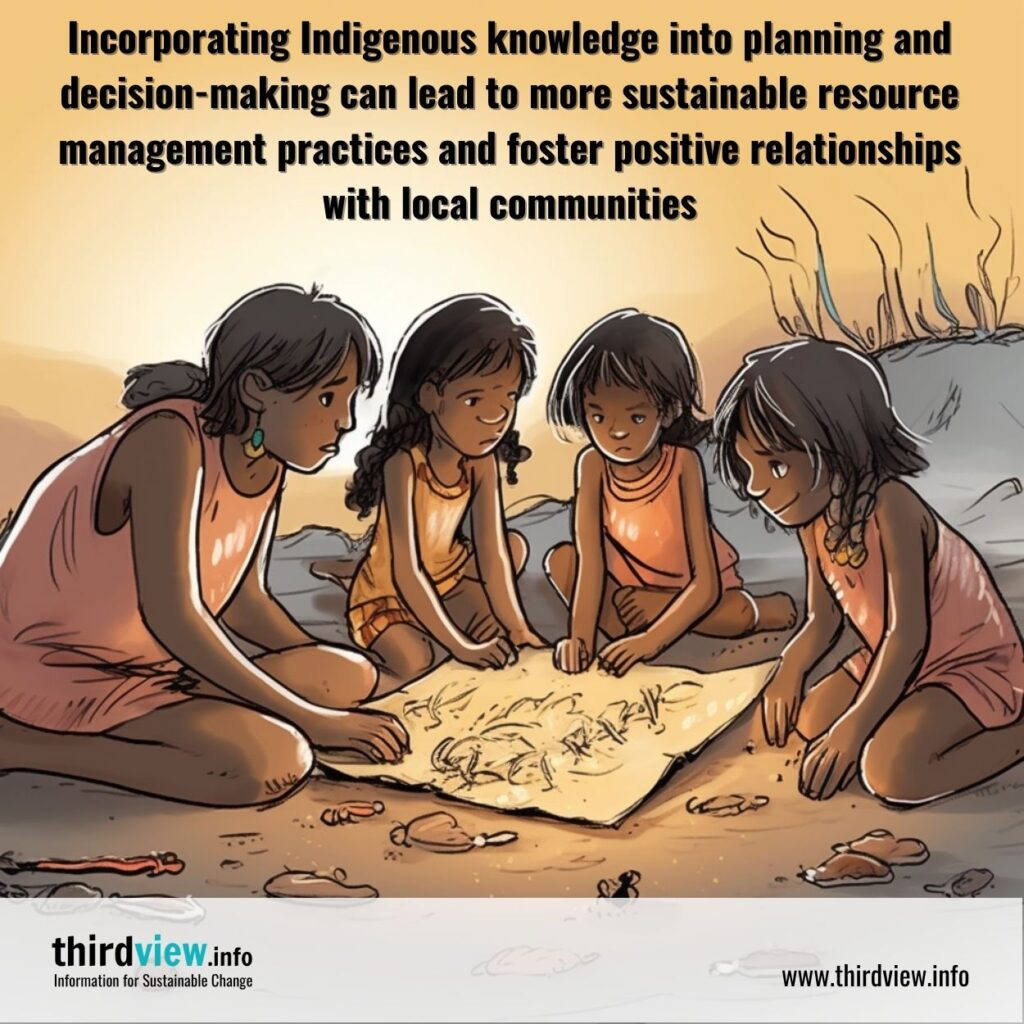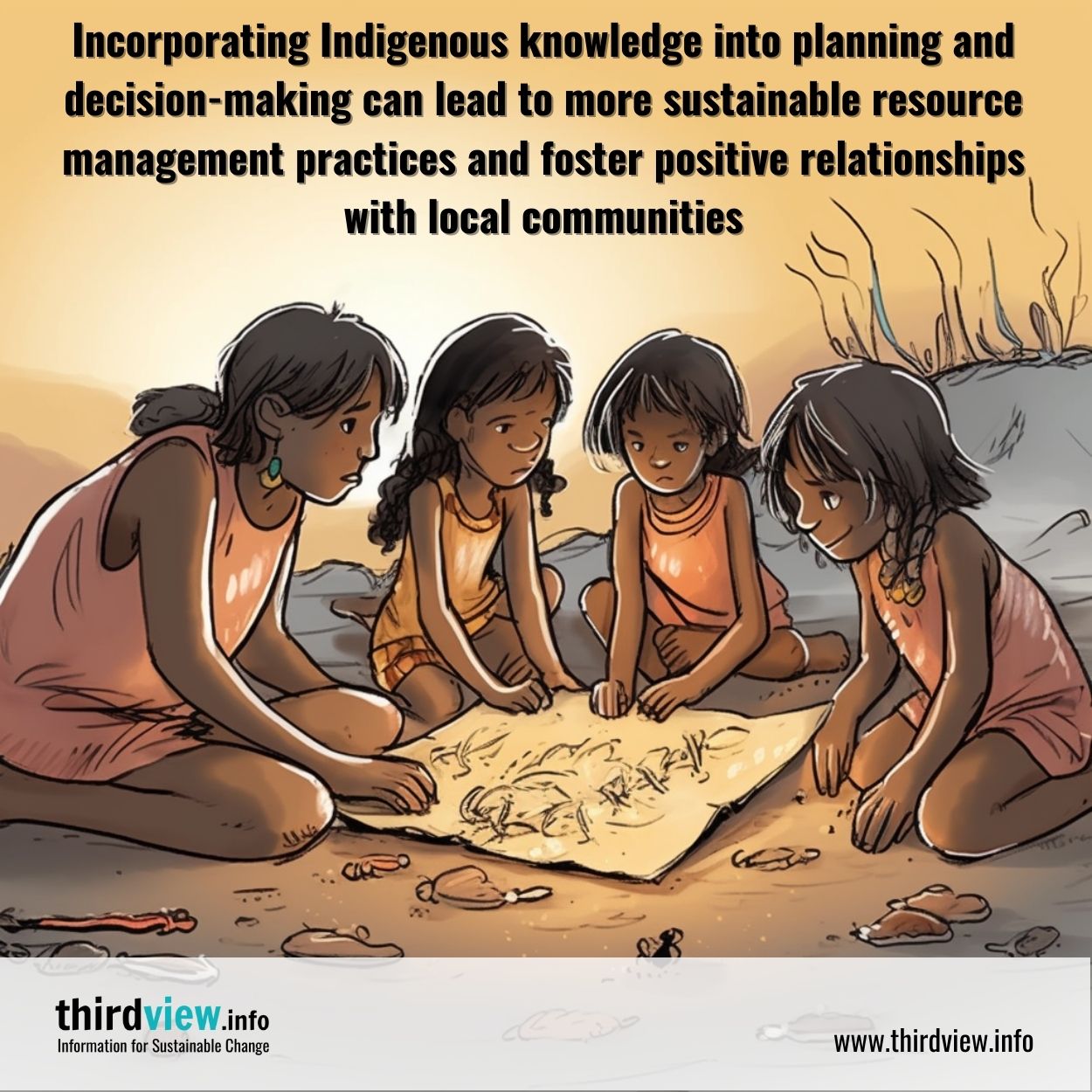Indigenous knowledge is an essential part of planning and decision-making. It is invaluable for understanding the context of a situation, creating meaningful solutions, fostering meaningful relationships with communities, and respecting cultural traditions. Let’s break down why incorporating Indigenous knowledge into planning and decision-making is beneficial.
What Is Indigenous Knowledge?
Indigenous knowledge refers to the unique ways that cultures around the world have developed to relate to their environment. It includes things like language, history, spiritual beliefs, traditional practices, laws, customs, and values that are specific to a particular culture or area. This knowledge has been acquired over generations through observation and experience. For example, some Indigenous peoples have detailed knowledge about the behaviour of species they rely on for sustenance such as fish or caribou. This knowledge can be used to plan activities in a sustainable manner that respects the land and its inhabitants.
Benefits Of Incorporating Indigenous Knowledge into Planning & Decision-Making
Incorporating Indigenous knowledge into planning and decision-making allows us to gain a better understanding of how best to interact with the environment. This understanding can lead to more sustainable resource management practices which can help reduce environmental degradation while still allowing people access to the resources they need. Additionally, involving local communities in decision-making processes allows them to feel respected by being consulted on matters that affect them directly. This can foster greater trust between governments and communities which can help build stronger relationships between all parties involved in planning processes.
Implications Of Not Incorporating Indigenous Knowledge into Planning & Decision-Making
On the other hand, not incorporating Indigenous knowledge into planning and decision-making can lead to negative outcomes such as unsustainable resource use or damaging cultural misunderstandings due to a lack of consultation with local communities. Not respecting Indigenous rights can also lead to conflict between government institutions and historically marginalized populations which further deepens existing divides within society. Clearly, there are many implications for not considering this type of knowledge when making decisions about how we interact with our environment.
It is clear that incorporating indigenous knowledge into planning and decision-making is beneficial for everyone involved; it leads to more sustainable resource management practices while also fostering positive relationships between governments and local communities. Doing so helps create solutions that are tailored specifically for each location while still respecting traditional values, customs, laws, history, language, spiritual beliefs, etc.
Overall, it is essential that planners take into account indigenous knowledge when making decisions about how we interact with our environment if we wish to achieve lasting solutions that benefit all parties involved in any given project or initiative. Failure to do so could result in negative consequences ranging from unsustainable resource use all the way up to serious conflicts between government institutions and historically marginalized populations. Understanding these benefits will help us create more effective plans that are culturally sensitive while still providing valuable insights from both Western sciences as well as traditional Indigenous perspectives.


